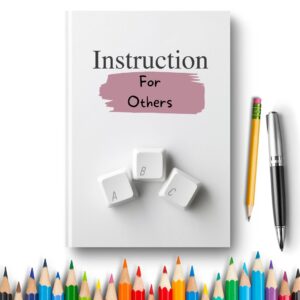If you’ve had some exposure to self-help, you’ve likely come across the concept of boundaries. Maybe you feel pretty confident about your boundary-setting skills or maybe you’re not that sure or clear. Either way, boundaries are one area of self-help that’s easy to misunderstand and harder to implement than we realize.
What boundaries are:
- Boundaries are enforceable rules and limits you set for yourself in response to others’ behaviors.
- They are acts of self-care and self-respect used when there is a violation of your emotional, physical or personal space.
- They require you to have a thoughtful plan on how you will respond to a violation.
- They are only effective when you have the power to enforce them.
- They are most effective when shared respectfully with others before taking action.
What boundaries are not:
- Boundaries are not to try to get others to respect us.
- Boundaries are not to change others people’s behaviors.
- They are not used as consequences or punishments for others’ actions.
- They are not ultimatums.
- They are not rules for others to follow.
- They are least effective when set from anger, impulse or emotional reactivity.
Based on what you just read, which of the following are appropriate boundaries:
A.) Telling a guest you don’t allow smoking in your home or car.
B.) Telling your partner it’s not ok to yell at you and he needs to stop.
C.) Asking your mother to not come over without calling first.
D.) Telling your partner to stop talking to his ex-girlfriend.
E.) Telling your boss you’ll go to HR if he curses at you.
We’ll go over the answers later. First, let’s talk about how hard this boundary business really is.
Boundaries Are Harder Than They Seem
Who doesn’t want healthy boundaries? They seem pretty logical and important, but it’s easy to underestimate how hard they are to implement and hold. Boundaries are an uncomfortable proposition under the best of conditions. The prerequisite is that someone has acted in a way we don’t like, and it’s usually someone we care about or some connection with. This can be disappointing at best and devastating at worst, because we all want people to act the way we want them to. Unfortunately, this is not on the menu and rarely happens. The obvious solution and first course of action is to try to get them to change so we can feel better. It is in this department where we can easily confuse a preference for a boundary. Sometimes, stating our preference is all that’s needed to get things back on track. Other times, people don’t comply and that when things get dicey. If we believe the only way we can feel respected or loved is for the other person to do what we want, we’ll often resort to threats mislabeled as boundaries as a means to this end. This is a painful and disempowered position that rarely creates a satisfying outcome. The other option is no less daunting but far more empowering and that’s to shift your attention back to yourself in order to figure out how to give yourself the very thing you want from the other person. This involves a kind of radical responsibility for our own self-care that, when taken, offers big long-term dividends that make it well worth the investment.
Boundaries Are Braver Than They Seem
When we tell someone we’re going to respond a certain way to their actions, the likelihood of them having a negative reaction to our self-care plan is pretty high. It would be unrealistic, for example, to expect that your partner would thank you for walking out of the room while s/he’s in mid-yell. I can’t think of any situation where someone would say, “wow, I’m so glad you care enough about yourself to follow through on that boundary and hang up on me when I’m super angry.” Setting a boundary means risking rejection, so it makes sense that we more often than not choose the safer route of staying upset with them and hoping they’ll change. Most of us will choose resentful and hopeful over scared and rejected any day. Seen another way, if I disapprove of you, I feel in control and justified, but if you disapprove of me, I have to feel vulnerable and find a way to generate my own confidence in the face of your negative opinion of me. This is not something that comes naturally and usually only after practicing the skill of managing our minds.
Answer key: A and E are the only appropriate boundaries in the list.



